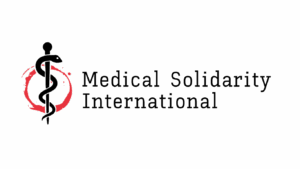Info Campaign 2024
Do human rights apply for all?
Human rights are universal and must be upheld for every individual, regardless of their gender, country of origin, religion or any other personal or cultural characteristic. These rights safeguard the dignity and freedom of every person and encompass a wide range of protections, including the rights to life, freedom, security, free expression, education, and equality before the law.
These rights are not merely moral principles, But also legally binding norms in over 170 countries. They are meant to ensure dignified life and security and counteract discrimination.
Ensuring these rights is a shared responsibility between the government, international organizations, and civil society. Additionally, in many countries, there are national human rights institutions that advocate for these rights.
One of the most important human rights treaties is the Universal Declaration of Human Rights (UDHR), which was adopted in 1948 at the General Assembly of the United Nations, as well as various international treaties such as the International Covenant on Civil and Political Rights (ICCPR) and the International Covenant on Economic, Social and Cultural Rights (ICESCR). These treaties establish universal human rights standards and obligate participating states to respect and protect these rights. In Europe, human rights are also enshrined in the European Convention on Human Rights, which was signed in 1950 by the member states of the Council of Europe. Unfortunately, many states do not comply with these conventions.
The 2023 Amnesty International Human Rights Report shows that the ‘rule of law and human rights […] are under threat worldwide as they have not been for decades.’ [1] Many states violate the fundamental rights of their citizens and commit daily breaches against these rights.
Access to rights is made difficult, especially for people fleeing crises and seeking refuge. The cross-section of the Medical Volunteers International (MVI) Advocacy Reports from 2023 [2] shows that fundamental standards such as access to basic medical care, water, nutrition, and hygiene products are often not guaranteed by the respective states.
In our daily work at the external borders of Europe, we are particularly confronted with the consequences of the illegal pushback of refugees. People with special needs face brutal rejection instead of support, and every effort is made to ensure that as few people as possible pass the borders into Europe and the European Union.
Treating people seeking refuge in another country with brutality violates essential human rights. The Geneva Refugee Convention asserts that states are not permitted to send people back to countries where they face serious human rights violations. Individuals who have left their country due to persecution or war are entitled to apply for asylum. The reality, however, often seems otherwise.
The EU border agency, Frontex, has repeatedly been implicated in pushbacks – the unlawful rejection or forcible return of individuals seeking protection. This illegal practice is carried out on a daily basis at all relevant EU external borders, whether in Greece, Poland, Croatia, Spain or Bulgaria. Italy and Malta are also involved in both pushbacks and pullbacks, towing back refugee boats that were already in international or European water [3] The victims of this boundless violence are countless.
The Border Violence Monitoring Network (BVMN), as an advocacy group for those affected, documents illegal pushbacks at the EU external borders. The BVMN reports in its 2023 annual report that at least 75% of refugees experience torture and inhumane treatment one or more times [4].
Even within Germany, the rights of refugees are not fully upheld. Amnesty International criticized the restrictive measures of the German government, which make it more difficult for asylum seekers to obtain fair access to support and protection [5].
Many refugees are confronted with bureaucratic barriers, which unnecessarily lengthen and complicate the asylum application process. A central issue is also the inadequate conditions in accommodations for refugees. People often live in overcrowded facilities, where there is a lack of privacy, protection from violence and consistent, adequate medical care. Such living conditions can not only impact physical well-being but also have serious negative psychological consequences.
Police violence is also a significant topic in Amnesty’s annual report. The report documents incidents of police violence and calls for thorough investigations of these cases as well as reforms for improvement. We at MVI support Amnesty International’s appeal to the German government [6] to take its human rights obligations more seriously and to take concrete measures to protect and promote the rights of all people in Germany.
ALL PEOPLE HAVE RIGHTS – HUMAN RIGHTS!
__________________________________
Resources:
[1] Amnesty International: Amnesty Jahresbericht 2023/24: Gewalt, Hass und Doppelstandards bedrohen die Menschenrechte [online]
https://www.amnesty.de/informieren/amnesty-report/amnesty-report-2023 [accessed: 29.09.2024].
[2] Medical Volunteers International: Advocacy Reports [online] https://medical-volunteers.org/de/news/#reports [accessed: 01.10.2024].
[3] Pro Asyl: Grenzenlose Gewalt [online] https://www.proasyl.de/grenzenlose-gewalt/ [accessed: 01.10.2024].
[4] Border Violence Monitoring Network: Annual Torture Report 2023 (26.04.2024) [online] https://borderviolence.eu/reports/annual-torture-report-2023/ [accessed: 25.09.2024].
[5] Amnesty International: Amnesty Jahresbericht 2023/24: Gewalt, Hass und Doppelstandards bedrohen die Menschenrechte [online]
https://www.amnesty.de/informieren/amnesty-report/amnesty-report-2023 [accessed: 29.09.2024].
[6] Amnesty International: Amnesty Report Deutschland 2023 [online] https://www.amnesty.de/informieren/amnesty-report/deutschland-2023 [accessed: 01.10.2024].


